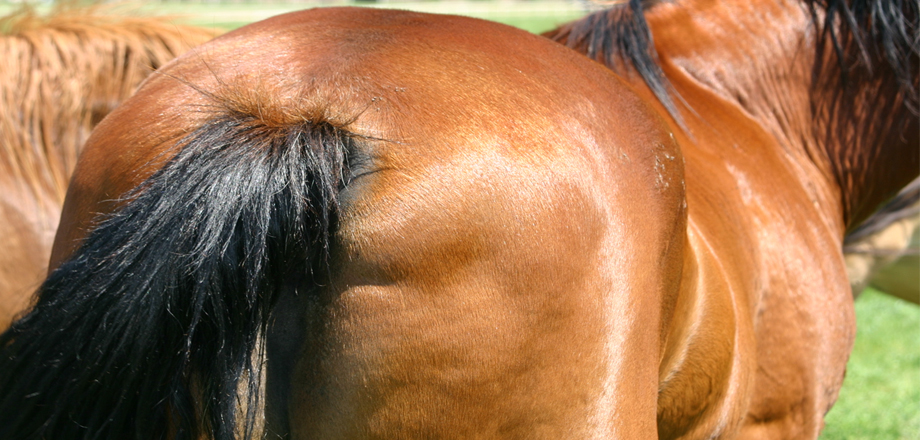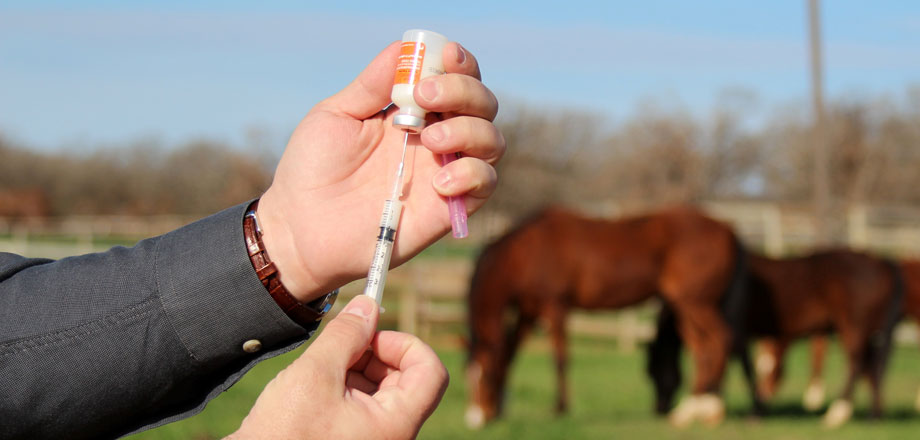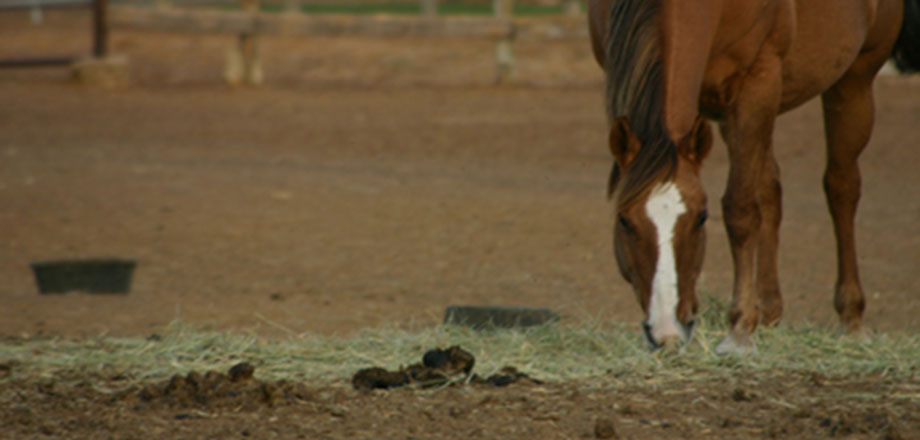Neurologic Disease Diagnosis and Treatment
Once a more thorough neurologic examination is conducted by the veterinarian, s/he may take one or more blood samples for testing. There is the possibility of false positives or false negatives, so your veterinarian may perform more than one test. Upon reaching a diagnosis, the appropriate treatment protocol will be prescribed. The drug choice and length of duration will depend on the severity of symptoms.
Neurologic Symptoms and Conducting a Neurologic Test
Unfortunately, not all health issues are easy to pinpoint, and serious disease can lurk behind random or non-specific symptoms. Neurological disorders have become increasingly common and diseases like Equine Protozoal Myeloencephalitis (EPM) can be misdiagnosed early on. A range of ambiguous symptoms may lead to confusion and frustration during diagnosis, while delays in treatment could lead to permanent damage – or worse.
It is important to learn how to perform a basic neurologic exam that may help limit the impact of neurologic distress. You will be able to involve your veterinarian much sooner which will minimize the potential threat of physical impairment.
Cushings Syndrome
Cushing’s Syndrome is a hormone disorder created by a hyper-stimulated pituitary gland over-communicating with the adrenal glands causing high levels of cortisol in the blood. It exists in the endocrine system, which is comprised of glands that secrete hormones into the bloodstream. These hormones control metabolism, mood, tissue function, and development. An unhealthy endocrine system will lead to health problems.
Vaccination Risks
While responsible vaccination can bolster a horse’s immune defense, overuse and unwarranted administration can reduce effectiveness and increase the risk of serious health issues. Thus, careful analysis and planning is essential to ensure the most effective vaccination protocol for each individual horse. Vaccination should not garner a one-size-fits-all approach. Special attention must be paid to several factors.
Proper Horse Nutrition
Learn how feed choices affect your horse. An explanation of the glycemic index is included to help you better feed decisions. Understand how complex carbohydrates can cause you horse to have health issues like Cushings, EPSM, ulcers and tying up.
Horse Vaccination Protocol
Learn about the negative side effects occurring from the over-use of vaccines. Understand more about “vaccinosis” and how vaccines can cause sometimes-permanent negative side effects. Conscientious, caring horse owners, when given all of the information, can make an informed decision and develop a healthier vaccine protocol for their horse based on education and common sense.
Equine Ulcers and EGUS
Equine ulcers represent the single most preventable health issue horses face today. A product of modern horse keeping practices and stresses, gastric ulcers, small and large intestinal ulcers, cecal and colonic ulcers and hindgut acidosis can have a drastic impact on horse health, disposition and performance. Extensive research over the last two decades highlights the severity and scope of Equine Gastric Ulcer Syndrome.
Ulcer Treatment Protocol
Ulcers have become extremely prevalent in today's horse. Stressful conditions such as stall confinement, training, competition and hauling can all lead to ulcerated tissue. Gastric ulcers and hindgut acidosis have a dramatic impact on a horse's health, disposition and performance. A horse with no gastrointestinal ulceration can develop ulcers very quickly when subjected to physical stressors.
De-Worming
Learn about the different types of internal parasites and how they affect your horse. Understand how your horse becomes infected with worms and why the traditional deworming approach is no longer recommended. An explanation of a Fecal Egg Count is included along with holistic alternatives to parasite management.





